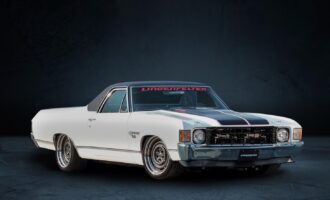
TRATON, Daimler and Volvo sign binding agreement to create JV
Three leading commercial vehicle manufacturers — the TRATON GROUP, Daimler Truck, and Volvo Group — have now signed a binding agreement to create a joint venture (JV) to install and operate a high-performance public charging network for battery electric, heavy-duty long-haul trucks and coaches across Europe.
The TRATON GROUP, Daimler Truck, and Volvo Group will own equal shares in the joint venture but continue to be competitors in all other areas. The creation of the JV is subject to regulatory approvals.
The JV partners have together committed to invest EUR500 million (USD), which is by far the largest charging infrastructure investment in the European heavy-duty truck industry to date.
The joint venture is scheduled to start operations in 2022 following completion of all regulatory approval processes.
The plan is to install and operate at least 1,700 high-performance green energy charging points on and close to highways as well as at logistic and destination points within five years of the establishment of the joint venture. The number of charging points will be increased significantly by seeking additional partners, as well as public funding.
The joint venture will operate under its own corporate identity and will be based in Amsterdam, Netherlands. It will be able to build on the broad experience and knowledge of its heavy-duty trucking founding partners.
Accelerating the build-up of EV charging infrastructure in Europe
The partners are committed to initiating and accelerating the necessary build-up of charging infrastructure for the increasing number of customers of electric vehicles in Europe and contribute to climate-neutral transportation in Europe by 2050.
The future JV will act as catalyst and enabler for realizing the European Union’s Green Deal for carbon-neutral freight transportation by 2050 — both by providing the necessary infrastructure and targeting green energy at the charging points. The joint action of the TRATON GROUP, Daimler Truck, and Volvo Group addresses the urgent need for a high-performance charging network to support truck operators with their transition to CO2-neutral transport solutions, especially in heavy-duty long-distance trucking. High-performance charging infrastructure enabling long-haul trucking is a cost-efficient way towards significant, fast-to-realize emission reductions, the partners said. The initiative is a significant start and an accelerator to make CO2-neutral heavy trucks and coaches a success, they said in a statement.
“We have the strong opinion that we as the TRATON GROUP together with our brands Scania and MAN as well as the commercial vehicle industry as a whole will be part of the solution when it comes to a CO2-neutral world. A collaboration with strong competitors like Daimler Truck and Volvo Group might seem unusual. However, the topic is of crucial importance and this unique cooperation will make us faster and more successful in delivering the transformational action needed to tackle climate change. Our joint venture will be a strong push for the rapid breakthrough of battery electric trucks and coaches, the most efficient and sustainable transport solutions,” said Christian Levin, CEO of TRATON GROUP.
“It is remarkable that three fierce competitors in the area of trucks and vehicle technology are taking action together to start establishing the needed charging infrastructure. Together with Volvo Group and the TRATON GROUP, we want to send a clear signal to all relevant stakeholders to follow our lead and act now,” added Martin Daum, CEO of Daimler Truck.
“We are going from words to action, and this planned joint venture with Daimler Truck and the TRATON GROUP is an important step in shaping a world we want to live in. Innovative partnerships like these will enable the much needed change that will benefit our customers — and the entire industry. This is both a historical milestone in the transformation towards fossil-free transport and a breakthrough that shows Volvo Group’s commitment to reaching net-zero greenhouse gas emissions by 2040 and a net zero emissions rolling fleet by 2050 at the latest,” said Martin Lundstedt, president and CEO of Volvo Group.









